Her Future, Her Choice: Transforming Lives in Mozambique
Munhiba, Mozambique.
I am sitting in a circle with Sexual and Reproductive Health and Rights (SRHR) peer educators, who are discussing their lives, families, choices and futures. Eventually, we stand up and our chats turn into songs. I learn that these young women are singing about ending violence, about community and solidarity, and even contraception.
One by one, they take turns dancing in the circle to introduce themselves and share their birth control choices. ‘Preservativo! Pilula!’ some of them sing out in a melodic tone. And then … they point, and it dawns on me that it’s my turn. In my terrible Portuguese and even worse singing, I introduce myself as Alex and share that I use an IUD. Giggles ensue.
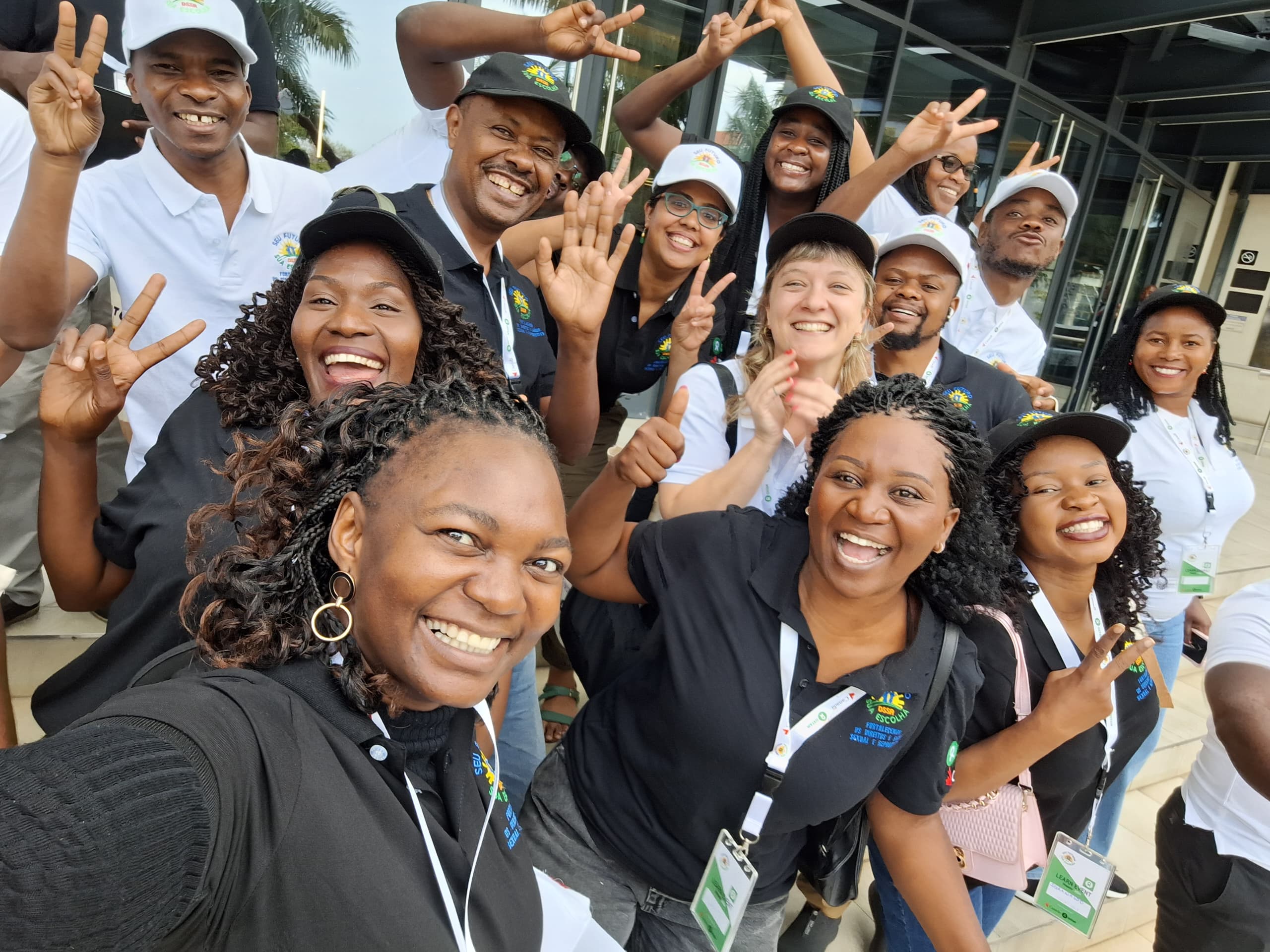
Earlier in the week, in Maputo, there’s a real buzz in the room where, after 6 years of teams working to improve women and girls lives across southern and eastern Africa, teams from Ethiopia, Malawi, Mozambique and Zambia meet in person for the very first time. Everyone here has been working relentlessly on Her Future, Her Choice, a multi-country project that empowers women and girls to make decisions about their bodies, health and futures. After all these efforts, it’s time to take stock of the project’s impacts and learnings.
We are hosted by the Oxfam in Mozambique team accompanied by partners NAFEZA and Pathfinder. To break the ice, they chant in Portuguese, Seu Futuro! Sua Escolha! and ask each country to share their own Her Future! Her Choice! slogan. Everyone tries their best to follow along, as we participate in call and response.
The Malawi team, with partners CAVWOC, NfYD, and FPAM, shout in Chichewa, Tsogolo Lake! Chisankho Chake! We also practice our Chitonga, with the team from Zambia, with SAfAIDS, PPAZ and WiLDA, Buumi Bwakwe! Kusala Kwakwe! And last but not least, our Ethiopian colleagues, with WE-Action and Pathfinder, exclaim in Amharic, Negewan Bemerchewa! It was a humbling exercise for those of us less skilled in linguistics. But a fun one, nonetheless.
It feels great to gather in-person after all these years to share songs, stories and accomplishments.
After a two-day workshop in Maputo where we discuss project challenges, strategies and results, we travel 600 kilometers north to the district of Mocuba to see first-hand the impact of Her Future, Her Choice (HFHC).
Our first stop is the Mugeba Rural Health Facility, where we meet inspiring staff who received training and medicines, supplies and equipment through HFHC.
Addressing teen pregnancy
Nurse Lidia works mostly with young people, providing youth-friendly services like sharing information, counselling and offering contraceptives. She’s helped countless teens with the knowledge and tools they need to make important decisions about their bodies and reproduction.
The results of her work are clear, with more teenage girls accessing contraception. Five years ago, she would support around 50 teenage girls who were pregnant every month. Today? Lidia sees 15 teenage pregnancies monthly. The numbers steadily decreased thanks to improved health services and more teens in the area learning about pregnancy and STIs, safer sex practices and consent, contraception, and abortion. This means that many more young girls in Mocuba are now enjoying their adolescence and living on their own terms
Next, we visit Luisa and Gina, a team that works together to provide survivors of gender-based violence with needed services. Luisa is a community activist and educator who works in her community to let people know where to go for help or support after sexual assault and other forms of violence. Gina, a nurse at the Mugeba Rural Health Facility, does the frontline medical care: providing psychosocial support, wound care, STI treatment, HIV prophylaxis and testing, emergency contraception, and safe abortion referrals if needed. They also work with the legal system, ensuring survivors have access to representation and protection in the pursuit of justice, if they so choose.
With the HFHC project coming to an end, they insist on carrying on their efforts. Gina explains, “the project came to teach us and the knowledge will stay with us. We will continue this work.”
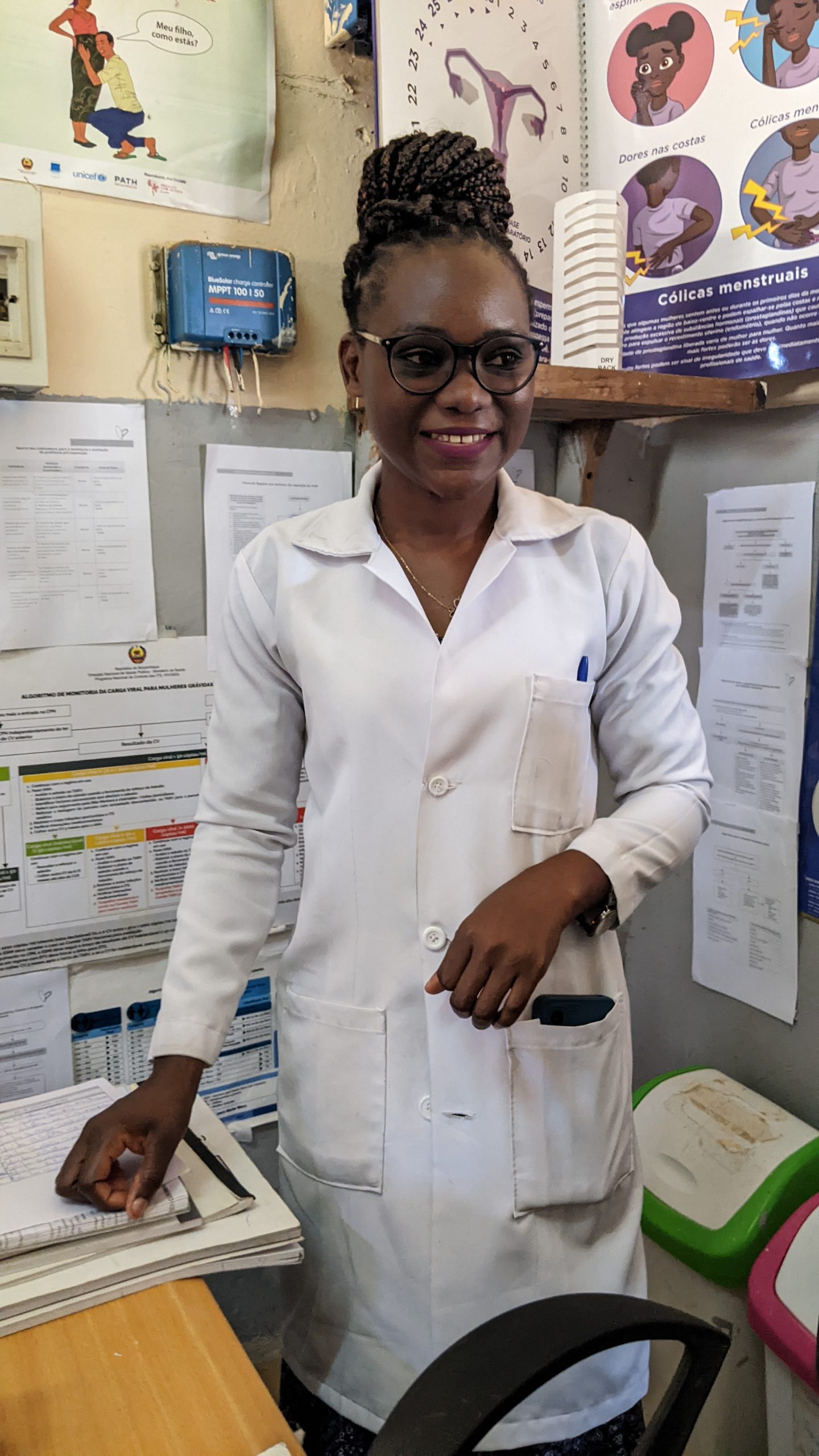
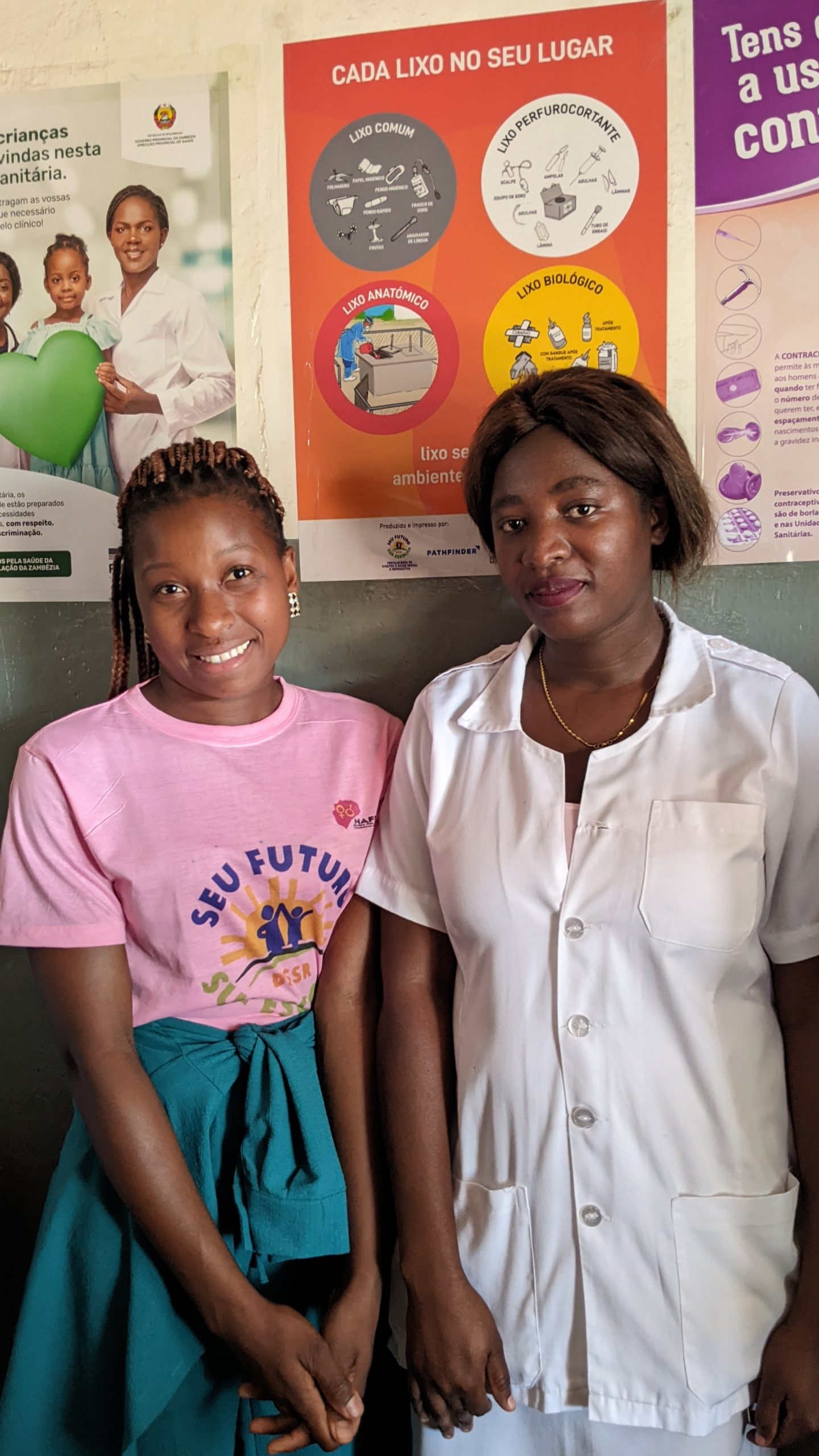
In the gynecology department, we meet Albertina and Launa, nurses who provide safe abortion and post abortion care. This includes surgical abortion, medical abortion (also known as medication abortion or non-surgical abortion), as well as post-abortion care for people who have had miscarriages or unsafe abortions.
Albertina and Launa describe how their skills have improved, and how community members have become more aware of what rights and services they have access to. All of this, they explain, has led to fewer cases of unsafe abortions, a leading and preventable cause of maternal mortality.
This is life-saving work.
Mobile Clinics
While the Mugeba Rural Health Facility is already supporting remote communities, there are harder-to-reach areas in the Mocuba district, where people face even greater challenges to access health services.
This is where our partner NAFEZA steps in to deploy mobile clinics. Nurses like Victoria set up shop on a monthly basis throughout the district to provide a wide-range of contraceptives: male and female condoms, contraceptive injectables, and oral contraceptive pills. They also offer referrals for IUDs, as these have to be inserted in health facilities to ensure comfort and reduce the chance of infection.
Our partners always engage with community members during these activities to inform and mobilize residents about available health services.
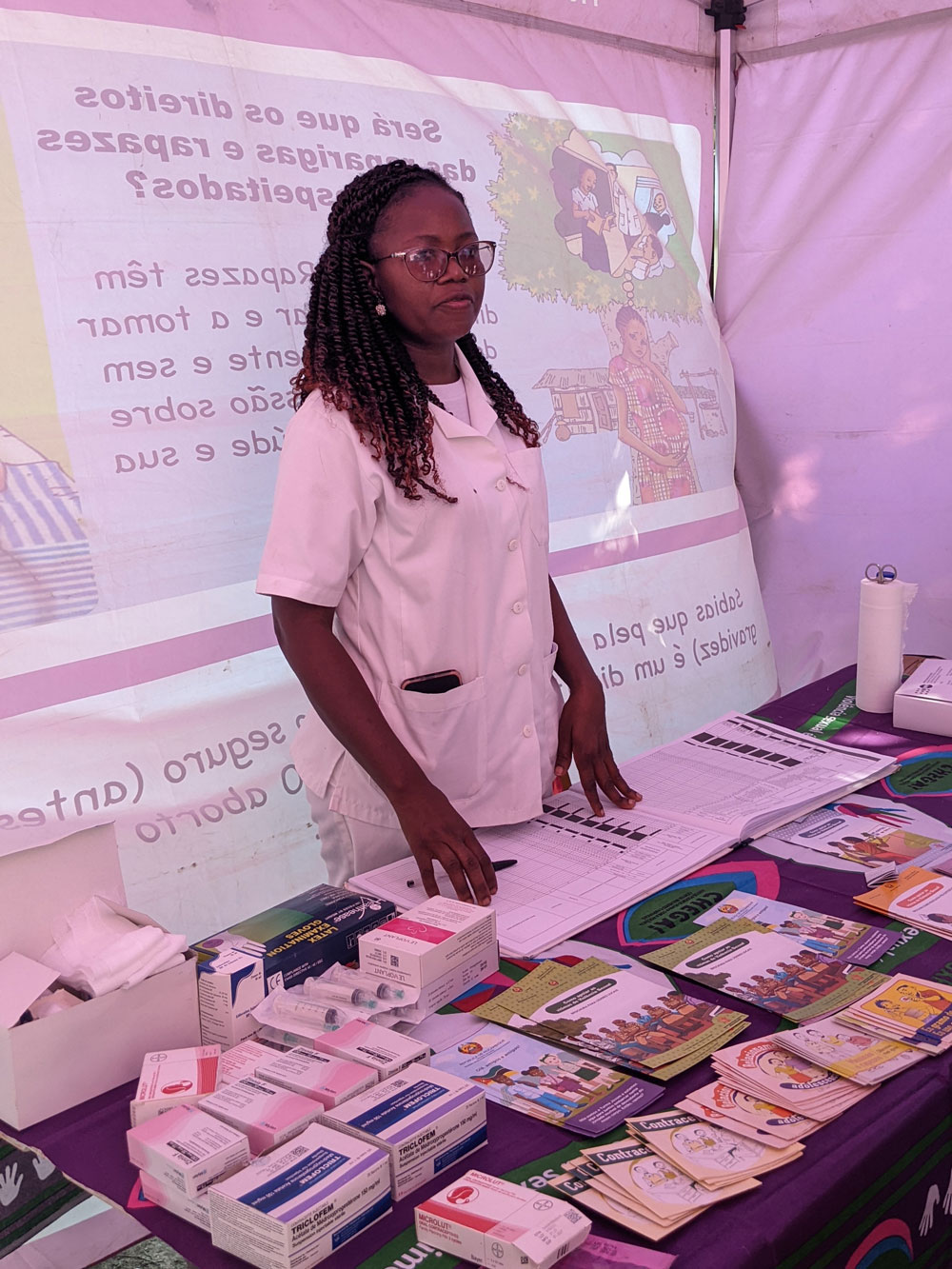
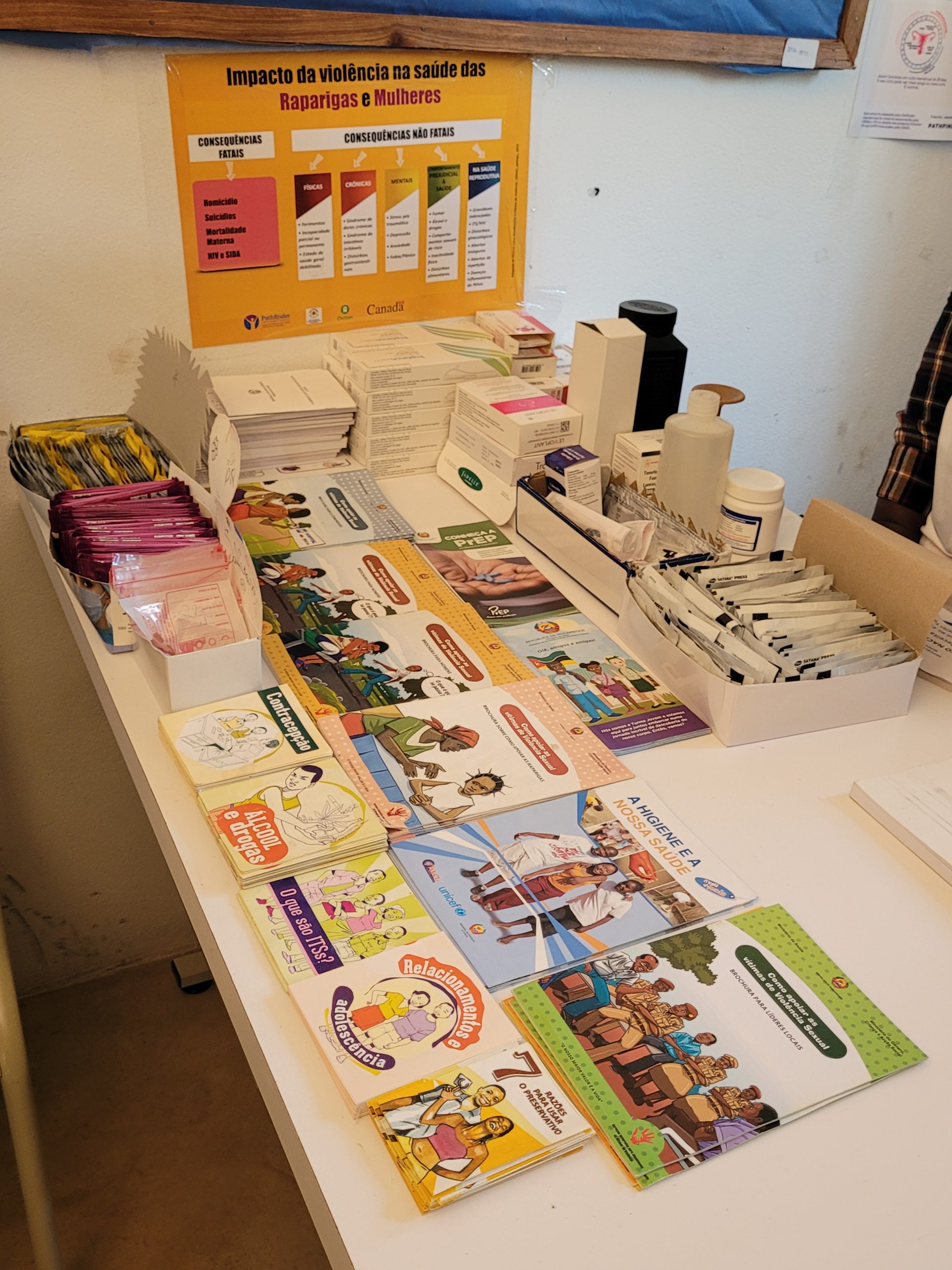
As I leave Mozambique, my notebook is filled with stories, many of which I couldn’t fit in this blog. Stories about the men who hosted a lecture on the laws preventing child marriage. Stories of young actors who transformed the pain of gender-based violence into raw, powerful theatre. And the hundreds of stories of girls who, against all odds, walked back through school gates because teachers and community members reminded them that their future was their own.
Not all of these stories are easy to hear and share. Some are heavy and moved me to tears. But what stands out to me is our partners’ and communities’ unshakeable joy and pride in their accomplishments, and the changes they were able to bring about in their own lives. And the giggles, lots of giggles.
Alex Wilson is a manager at Oxfam Canada’s International Programs Department.

